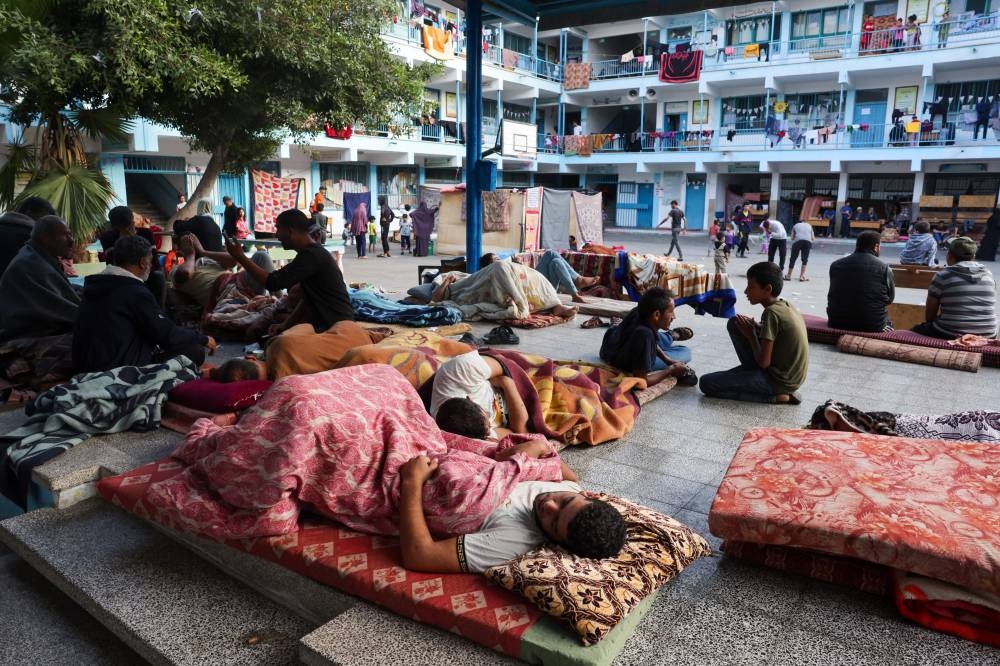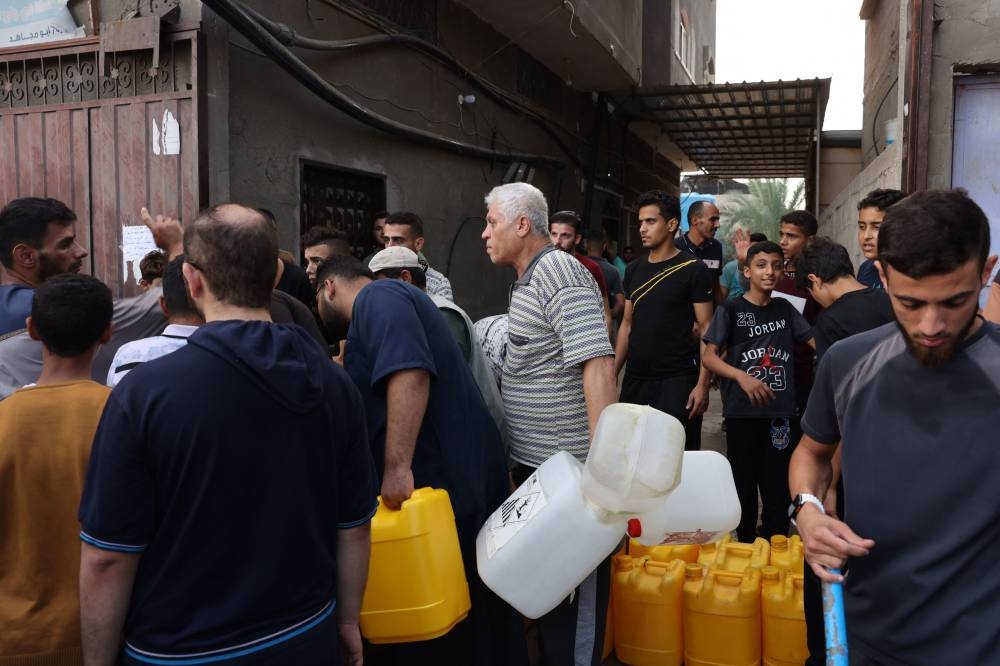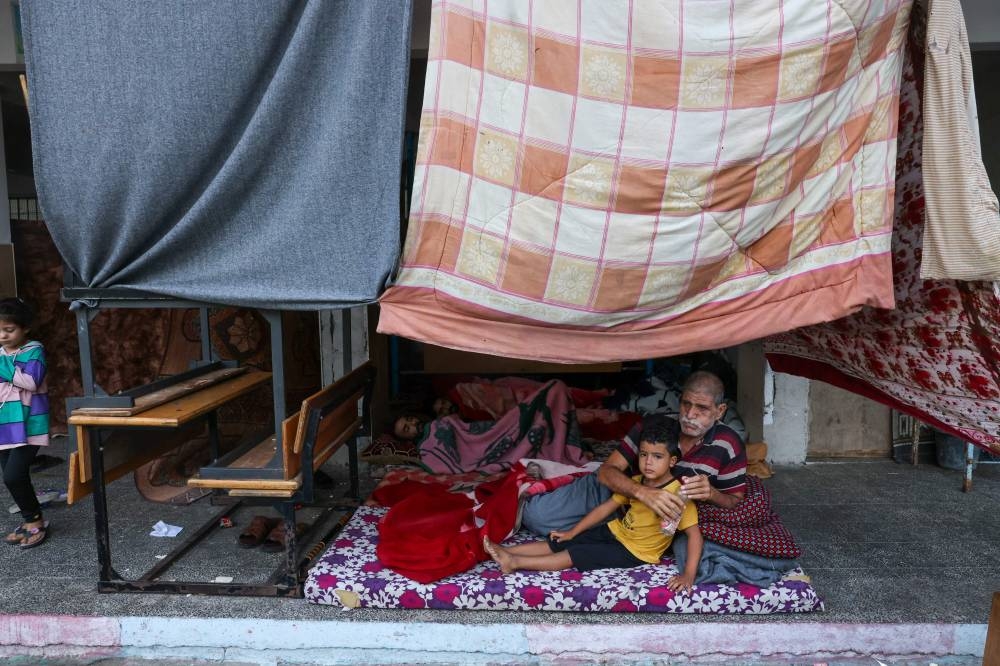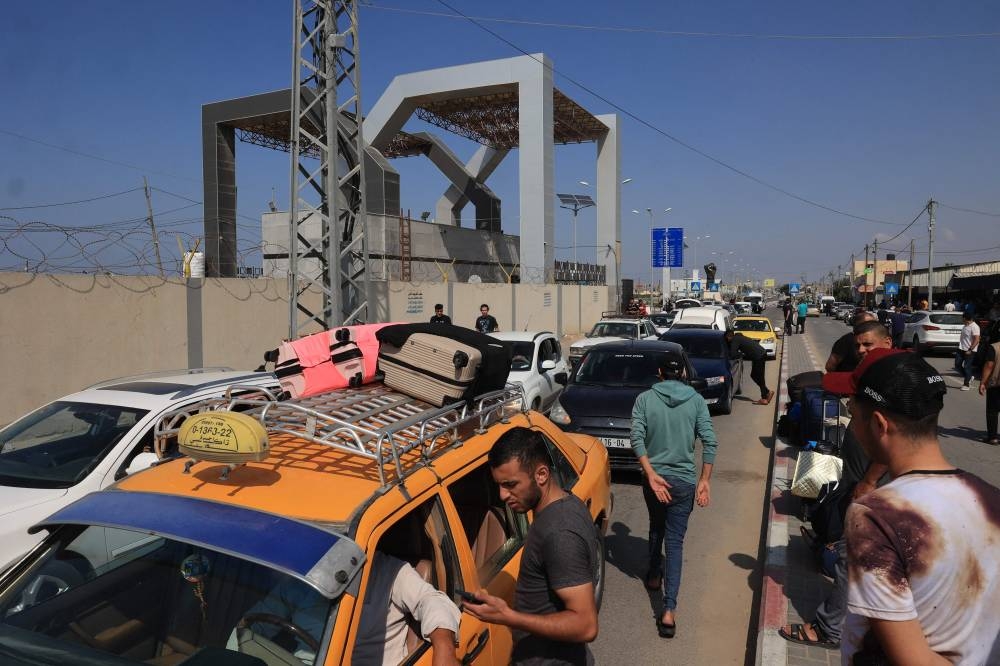Thousands of Palestinians have gathered in the south of the Gaza Strip, laying out beds on the streets after UN-run schools filled up following Israel's warning to evacuate the north of the impoverished enclave.
Israel on Friday called on the 1.1 million inhabitants of northern Gaza to evacuate, ahead of an expected ground offensive following last week's surprise Hamas attack on Israeli territory.
In Nasser Hospital in Khan Yunis, thousands of uprooted people gathered in the yard and in hallways, searching for food, water and a place to sleep, according to AFP journalists.
"The situation is catastrophic," said Jumaa Nasser, who travelled from Beit Lahia in northern Gaza with his wife, mother and seven children. "We've had no food or sleep. We don't know what to do. I've given my fate up to God. Death and life are in the hands of God."
Store shelves were empty of all basic goods, after Israel cut off food, water and electricity supplies to the coastal enclave of 2.4 million people.
Outside the hospital, families sat on the ground, some with children crying.
Medical staff were overcome with exhaustion as they worked around the clock amid non-stop Israeli strikes on the area.
Thousands took refuge in a school sponsored by UNRWA, the UN agency in charge of Palestinian refugees.
Ahmed Abu Shaar, a father of 13, said "our situation is tragic. There's not enough food or water. We don't know if we will die here or if they will force us to flee to Egypt, or if we will return to our houses that may have been destroyed."
AFP journalists in Rafah said they saw other displaced people looking for places to stay.
About 200 people crowded into a filling station for cooking gas at the entrance to Rafah.
One of them, Ahmed Abu Ruk, said "I've been waiting in line for an hour to get some gas so we can cook and give food to the children."
In front of a water filling station, tens of people lined up to fill bright yellow jerrycans.
The Israeli army on Saturday said it would give people six hours a day to evacuate Gaza, though it was unclear how many days this would last.
The UN has warned of potentially "devastating" humanitarian consequences from the Israeli evacuation order.
Hamas, which controls Gaza, has rejected the evacuation order, saying they are "steadfast on our land and in our homes and our cities... no displacement, no deportation".
Palestinian president Mahmud Abbas expressed on Friday, during a meeting with US State Secretary Antony Blinken, his "total rejection" of the displacement of Gaza's inhabitants.
He warned of a "second Nakba", referring to the displacement and expulsion of more than 760,000 Palestinians during the establishment of the Israeli state in 1948.
On Saturday, hundreds of Palestinians with foreign passports gathered at the Rafah border crossing, in the hope that they would be allowed passage into Egypt.
The crossing was closed in recent days after Israeli airstrikes hit the Palestinian side.
Rafah's border crossing is the only one out of Gaza not under Israeli control, but passage is often hampered by closures and the need for multiple authorisations.
While waiting for the signal that the border was open, Rami Omar al-Sharafi, who holds an American passport, said "they told us at 2:00 am to go to the border crossing between midday and 5:00 pm. We came despite the bombing.
"The road is very dangerous and I have children with me. So far, the embassy hasn't communicated with me. We are just waiting to see what will happen".

Internally displaced Palestinians rest as they take refuge in a United Nations school, in the Rafah refugee camp, in the southern of Gaza Strip on Saturday. AFP

Palestinians queue to refill on water in Rafah refugee camp in the southern of Gaza Strip, on Saturday. AFP

An internally displaced Palestinian man sits with a child on a mattress on the ground as they rest as they take refuge in a United Nations school, in the Rafah refugee camp, in the southern of Gaza Strip Saturday. AFP

Palestinians with foreign passports arrive at the Rafah gate hoping to cross into Egypt as Israel's attacks on the Gaza Strip continues on Saturday. AFP
